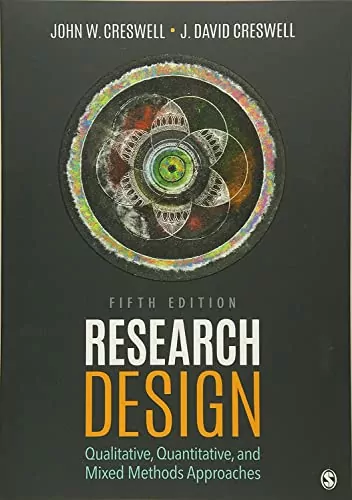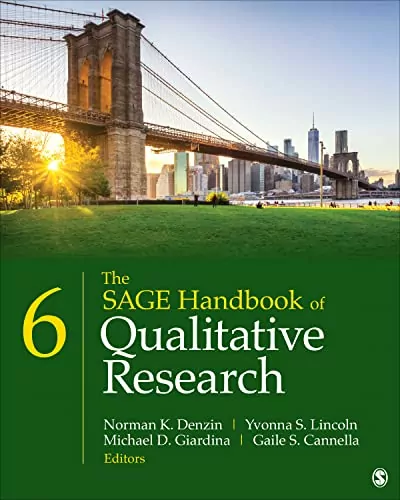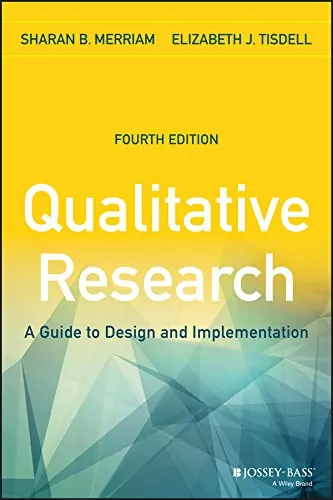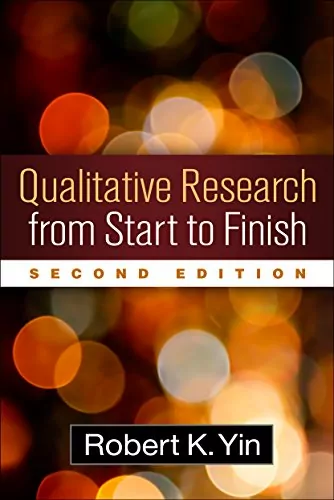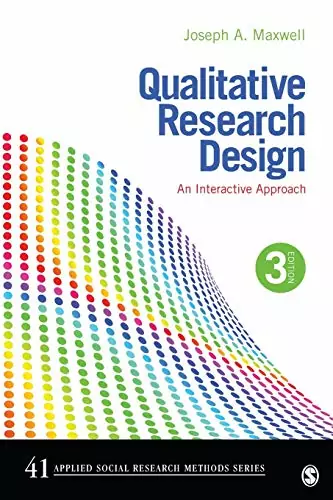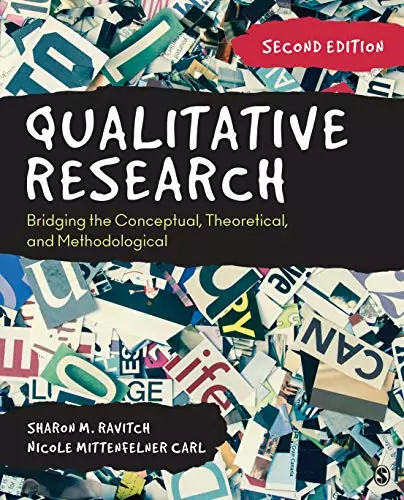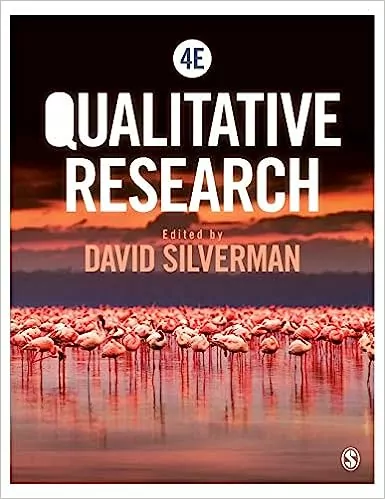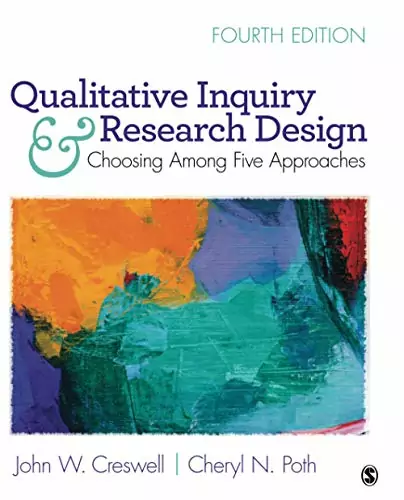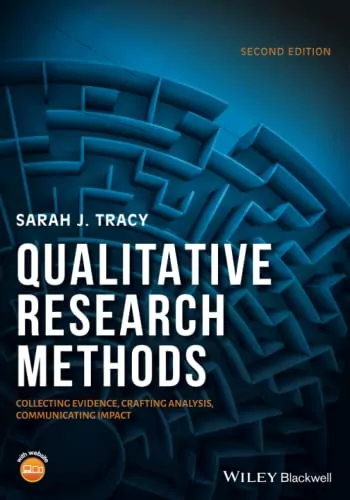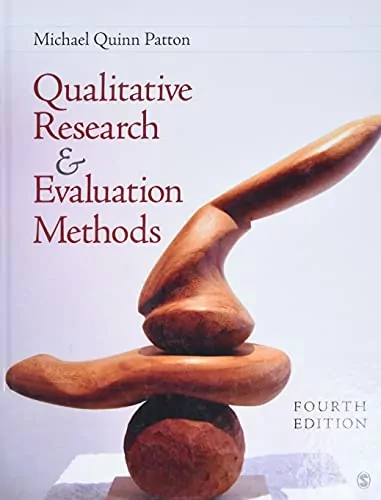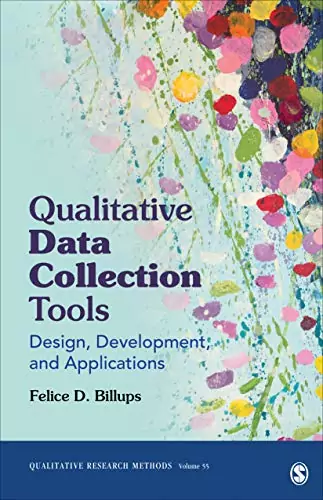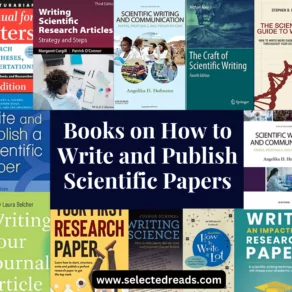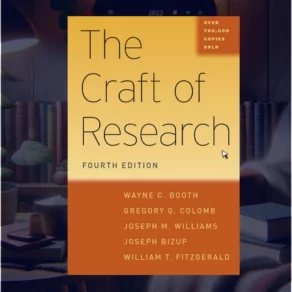In today’s list, I am sharing with you some of the most impactful books that helped shape my understanding of qualitative research. These books are more than just academic texts; they are powerful tools that unlocked the secrets of data analysis, the art of crafting impactful narratives, and the science of asking the right questions.
Of all the wonderful resources listed, if I had to recommend just one indispensable guide, it would undoubtedly be John W. Creswell’s “Research Design: Qualitative, Quantitative, and Mixed Methods Approaches“. This book offers an invaluable roadmap for any researcher, irrespective of their level of expertise, and forms the backbone of a successful research project. Creswell’s ingenious blend of methodologies is not just about theoretical knowledge; it instills the reader with a practical sense of how to design a robust and compelling research project.
For those of you interested in quantitative research, make sure to check out my other post entitled best books on quantitative research.
Books on Qualitative Research
Here are my picks for best books on qualitative research:
1. Research Design: Qualitative, Quantitative, and Mixed Methods Approaches, by John W. Creswell and J. David Creswell
This widely recognized book offers a comprehensive study of qualitative, quantitative, and mixed research methodologies. Its distinguishing feature is its juxtaposition of all three research designs, making it a valuable resource for both new and experienced researchers. The authors provide a meticulous guide that starts with a fundamental understanding of philosophical suppositions, essential aspects of the research process, literature review, theory application in research, and the significance of writing and ethics in academic inquiry.
The updated edition includes a detailed discussion on research proposal design and research study steps. It sheds light on the positioning of epistemological and ontological views in relation to the selected research question and methodology. It also delves into the transformative worldview and features expanded insights into case studies, participatory action research, visual methods, and action research in mixed methods.
2. The SAGE Handbook of Qualitative Research, by Norman K. Denzin, Yvonna S. Lincoln, Michael D. Giardina, Gaile S. Cannella (Editors)
The Sixth Edition of The SAGE Handbook of Qualitative Research is virtually a new volume, delivering an enriching dialogue on the discipline, practices, and conduct of qualitative inquiry. This edition pioneers fresh perspectives and techniques, with 27 out of 34 chapters focused on innovative topics or approaches not covered in the previous version.
The novel areas of study include intersectionality, critical disability research, postcolonial and decolonized knowledge, diffraction and intra-action, and social media methodologies. Other new chapters explore thematic analysis, collaborative inquiry from the borderlands, qualitative inquiry’s relationship with public health science, co-production and the politics of impact, qualitative research publishing, and academic survival.
3. Qualitative Research: A Guide to Design and Implementation, by Sharan B. Merriam, Elizabeth J. Tisdell
The fourth edition of this bestselling guide provides an in-depth understanding of qualitative research, from conceptualization to presentation. Emphasizing the importance of theoretical frameworks in designing a study, the book offers practical guidance in an accessible, jargon-free style that caters to both new and seasoned researchers.
The latest edition includes expanded coverage of mixed methods, action research, arts-based research, and online data sources. It also presents the newest developments in data analysis, encompassing both software packages and narrative and poetic analysis techniques. In addition, it offers a new section on diverse ways of presenting qualitative research findings, making it an indispensable resource for effective communication of results.
4. Qualitative Research from Start to Finish, by Robert K. Yin
This insightful book offers a comprehensive understanding of the practice of qualitative research. It guides readers through all significant research phases, from startup and design to data collection, analysis, and composition, covering newly emerging trends in the field. The unique aspect of the book is its portrayal of qualitative research as an adaptive craft, offering readers an array of methodological choices to tailor their studies according to different worldviews and genres.
The new edition provides an enhanced discussion on different worldviews, including constructivism, postpositivism, and pragmatism, and how these relate to methodological choices. There is a clearer emphasis on executing a generalized qualitative study while acknowledging the existence of 12 specialized genres, such as action-based research, arts-based research, autoethnography, grounded theory, phenomenology, and others. The book also features expanded discussions of diverse qualitative study samples and mixed methods.
5. Qualitative Research Design: An Interactive Approach, by Joseph A. Maxwell
Joseph A. Maxwell’s third edition of Qualitative Research Design: An Interactive Approach offers a user-friendly, step-by-step guide to planning qualitative research. The book’s main strength is its interactive approach, which highlights the interplay among the various components of research design.
The author provides a strategic framework for creating coherent and viable relationships among these components, emphasizing key design issues. The book’s language is informal and free of heavy jargon, making it accessible to a broad range of readers.
The book is sprinkled with real-world examples and hands-on exercises designed to reinforce the concepts discussed and to provide practical insights into the planning and execution of qualitative research. This comprehensive guide is an invaluable resource for both students and researchers embarking on their qualitative research journey.
6. Qualitative Research: Bridging the Conceptual, Theoretical, and Methodological, by Sharon M. Ravitch, Nicole Mittenfelner Carl
The second edition of Qualitative Research emphasizes the harmonization of theoretical, methodological, and conceptual dimensions, providing deeper insights into their interplay in qualitative research. This comprehensive resource equips students with the necessary knowledge and skills to conduct rigorous, valid, and respectful qualitative research.
The book serves as an effective learning tool for both newcomers and those already familiar with qualitative research, helping students develop a comprehensive understanding of a research approach that seeks, designs for, and engages in criticality.
The new edition has amplified and relocated the discussion on research ethics to a prominent position, reflecting its importance in students’ inquiry. It offers more insights on reflexivity in data collection and specific methods for qualitative data collection. There is a more detailed chapter on coding and other types of qualitative data analysis. Additionally, the resource sections have been expanded, including links to the comprehensive appendices to further aid students on their qualitative research journey.
7. Qualitative Research, by David Silverman (Editor)
This edition of Qualitative Research serves as a comprehensive guide, providing students with a holistic view of qualitative research. It not only explains the rationale behind such research but also provides practical advice on how to get started, select appropriate methods, conduct research, and perform data analysis. Each chapter, akin to a masterclass from a leading scholar in qualitative research, comes with practical tips, summaries, exercises, and further reading to assist in understanding and application.
The fourth edition has been streamlined to guide readers through the research process in a step-by-step manner. A significant new section with four chapters has been added, focusing on the collection and analysis of online data. A new chapter on reflexive ethnography is also included, offering insights into this nuanced qualitative research method.
8. Qualitative Inquiry and Research Design, by John W. Creswell, Cheryl N. Poth
The revised Fourth Edition of this best-selling text is a comprehensive exploration of the philosophical foundations, historical development, and crucial elements of five qualitative inquiry approaches: narrative research, phenomenology, grounded theory, ethnography, and case study.
The Fourth Edition is enhanced with new content, articles, pedagogical features, and references. It provides a broader discussion on research ethics and serves as an excellent introduction to the theories, strategies, and practices of qualitative inquiry. This book is an ideal resource for those embarking on their qualitative research journey, offering nuanced understanding and practical strategies for choosing among these five significant approaches in qualitative research.
9. Qualitative Research Methods, by Sarah J. Tracy
This comprehensive guide brings together both theoretical underpinnings and practical applications of qualitative research in a way that is engaging and accessible. The book adopts a phronetic-iterative approach, leading readers through every phase of a qualitative research project, from design to data collection and analysis, through to theory development and effective communication of results.
The book provides in-depth coverage of a variety of topics, including qualitative theories, research ethics, sampling techniques, interviewing methods, and ensuring quality in qualitative research. Practical advice on fieldwork is also included, offering clear and concise guidance on how to design and conduct robust research projects.
10. Qualitative Research & Evaluation Methods, by Michael Quinn Patton
Drawing from over 40 years of applied social science research and program evaluation experience, author Michael Quinn Patton presents the most systematic and comprehensive book on qualitative research and evaluation methods available. In this fourth edition, he offers a more balanced view of applied research and evaluation.
The book shines a light on all facets of qualitative inquiry, using new examples, stories, cartoons, and over a hundred new summarizing and synthesizing exhibits. For the first time, it includes full case studies that illustrate extended research and evaluation examples. Additionally, each chapter contains an in-depth “rumination” about a core issue of persistent debate and controversy, which is intended to be both emphatic and engaging.
12. Qualitative Data Collection Tools, by Felice D. Billups
This unique supplementary text guides students and new researchers to design, develop, and apply qualitative tools to gather qualitative data. This essential aspect of qualitative research, often overlooked in general textbooks, forms the backbone of the data collection process. Felice D. Billups uses her experience as a qualitative researcher and in teaching and advising students about qualitative research to develop the templates in this book as a starting point for those conducting original qualitative research.
The book briefly describes each method of data collection and offers readers suggestions for using and adapting the qualitative instrument templates within the text. The text is filled with templates for interview protocols, focus group moderator guides, content analysis tools, document analysis tools, reflective questionnaires, diary and journal logs, and observational rubrics.
Final thoughts
If you’re new to qualitative, consider this list your foundational toolkit. And for seasoned researchers, may these books provide fresh insights or perhaps remind you of important tenets you may have forgotten. The beauty of qualitative research is its ever-evolving nature, and these books offer lenses through which you can appreciate its many facets.
And don’t just stop at qualitative research. If your work leans into the quantitative side of things, make sure to circle back to my other post on the best books for quantitative research. It’s all about having a well-rounded toolset, right?




